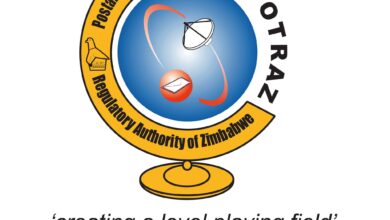Zimbabwe’s Digital Economy Strategy: Leveraging ICT for Growth

Zimbabwe’s digital economy strategy is one of the nation’s pillars towards its development. The nation is going through tumultuous times. However, government acknowledgement of the importance of ICT is vital and a step in the right direction. This is so because the world’s gravitation towards ICT and reliance on all things digital for sustenance and growth builds into Zimbabwe’s developmental agenda.
What is Digital Economy?
Deloitte defines it as “the economic activity that results from billions of everyday online connections among people, businesses, devices, data, and processes.” This definition in the Zimbabwean context is seen both in the formal and informal sector relying mostly on Facebook marketplace and Instagram sponsored posts. A few of those in these sectors also use twitter.
Additionally, with regards to devices, data and processes, Zimbabwe’s use of these has been growing over the past years. Furthermore, some organisations use ICT for data processing, sorting and storing. Such organisations include ZIMSTAT, Research Council of Zimbabwe and government ministries. These organisations data is then used in economic activities by both the public and private sector.
Also, Deloitte further states that “The backbone of the digital economy is hyperconnectivity which means growing interconnectedness of people, organisations, and machines that results from the Internet, mobile technology and the internet of things (IoT).” The government of Zimbabwe led by the ministry of ICT is leveraging internet access for successful digital economy. Therefore, interconnectedness plays a huge role in the success of digital economy.
Zimbabwe’s Digital Economy Strategy
Zimbabwe is working on a Smart Master Plan for its development. This is going to be possible due to the use of ICT by government and private sector. Furthermore, the document states that adopting a new approach and exploiting the potential of ICTs will be done. Furthermore, this will be by developing appropriate and cost-effective applications that can improve the country’s productivity and competitiveness.
Herein comes the role played by digital economy, with the use of technology, an economy that is digital can save time and money. It can also eliminate such issues as corruption, unnecessary bureaucracy and bring in smart solutions.
Furthermore, Zimbabwe’s smart outcome for 2030 entails a digital economy strategy that will emerge as a network of economic activities, commercial transactions and professional interactions. There will be facilitation by a systematic adoption and deployment of ICTs. Also, this digital economy will mostly be in the following the ICT enabled industry. It will also contribution to the nation’s GDP and ensure competitiveness of Zimbabwe’s products.
Conclusion
Zimbabwe’s digital economy strategy is ideal for consistent and sustainable development. This will only be made possible if all stakeholders involved share common goals and have one agenda, growth. It will also help the nation progress in all sectors and improve livelihoods, equal access to opportunities and resources only if done well. Additionally, it will aid in dealing with corruption and other ant-progress practices. This would be a new dawn for the nation, a nation that ensures fair access opportunities and rewards for those who deserve it.





